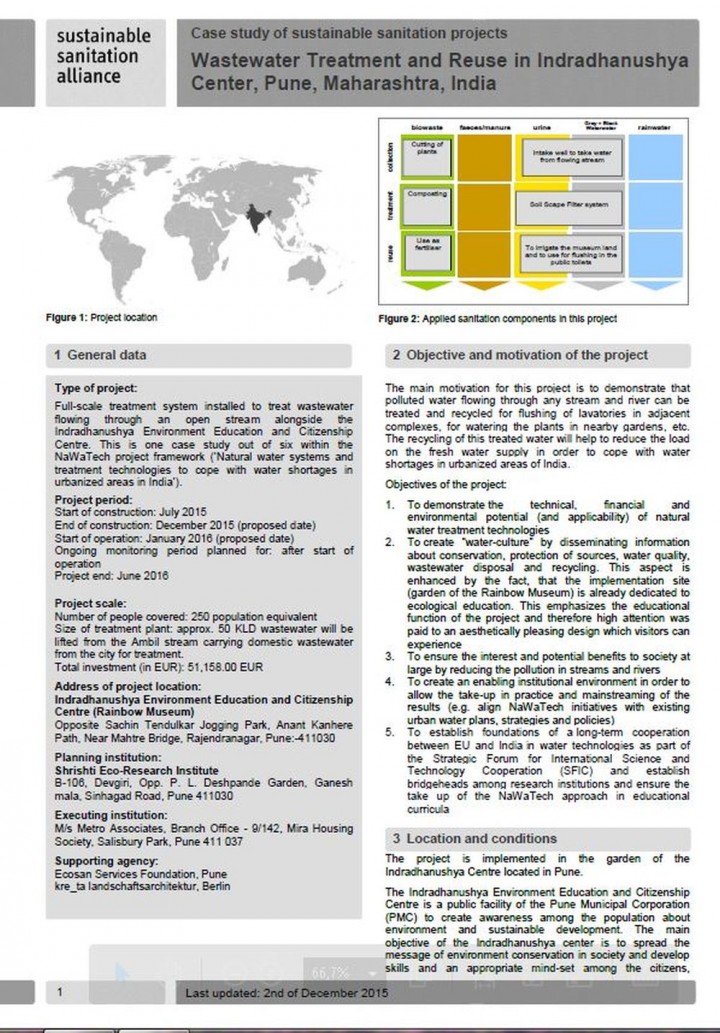Wastewater Treatment and Reuse in Indradhanushya Center, Pune, Maharashtra, India (NaWaTech) - Case study of sustainable sanitation projects
Sayali, J., Pallavi, P. (2015)

Published in: 2015
Pages: 7
Publisher:
Sustainable Sanitation Alliance (SuSanA)
Author:
Sayali, J., Pallavi, P.
Uploaded by:
SuSanA Admin
Partner profile:
common upload
12181 Views
771 Downloads
Location of library entry
The main motivation for this project is to demonstrate that polluted water flowing through any stream and river can be treated and recycled for flushing of lavatories in adjacent complexes, for watering the plants in nearby gardens, etc. The recycling of this treated water will help to reduce the load on the fresh water supply in order to cope with water shortages in urbanized areas of India.
Objectives of the project:
1. To demonstrate the technical, financial and environmental potential (and applicability) of natural water treatment technologies
2. To create “water-culture” by disseminating Information about conservation, protection of sources, water quality, wastewater disposal and recycling. This aspect is enhanced by the fact, that the implementation site (garden of the Rainbow Museum) is already dedicated to ecological education. This emphasizes the educational function of the project and therefore high attention was paid to an aesthetically pleasing design which visitors can experience
3. To ensure the interest and potential benefits to society at large by reducing the pollution in streams and rivers
4. To create an enabling institutional environment in order to allow the take-up in practice and mainstreaming of the results (e.g. align NaWaTech initiatives with existing urban water plans, strategies and policies)
5. To establish foundations of a long-term cooperation between EU and India in water technologies as part of the Strategic Forum for International Science and Technology Cooperation (SFIC) and establish bridgeheads among research institutions and ensure the take up of the NaWaTech approach in educational curricula
Bibliographic information
Sayali, J., Pallavi, P. (2015). Wastewater Treatment and Reuse in Indradhanushya Center, Pune, Maharashtra, India (NaWaTech) - Case study of sustainable sanitation projects. Sustainable Sanitation Alliance (SuSanA)
Filter tags
Case studies in SuSanA template East Asia & Pacific















